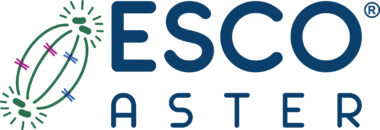Ad hoc announcement pursuant to Art. 53 LR
ZUG, Switzerland--BUSINESS WIRE--
Galderma (SIX: GALD), the pure-play dermatology category leader, today announced that it has agreed to repurchase 2.38 million shares at a price of CHF 97.75 per share for a total consideration of CHF 232.5 million in the context of the accelerated bookbuild offering (“ABO”) of Galderma shares by Sunshine SwissCo GmbH (“EQT”), Abu Dhabi Investment Authority and Auba Investment Pte. Ltd. launched yesterday evening. The repurchase was made at the same price per share determined by the bookbuilding offering.
The repurchase, which is expected to settle on June 2, is being financed by Galderma’s existing liquidity on hand and will not affect the company’s ability to deliver on its strategic and financing priorities.
The shares will be held in treasury for future use in connection with Galderma's employee participation plans, business development opportunities and/or treasury management.
“The repurchase of shares announced today is a testament to the confidence of the Executive Committee and the Board of Directors in the performance fundamentals and the attractive shareholder value creation outlook of Galderma. The participation in the offering reflects our continued focus on disciplined capital allocation, commitment to attractive shareholder returns and our confidence in Galderma’s strong cash generation and investment grade balance sheet.”
FLEMMING ØRNSKOV, M.D., MPH CHIEF EXECUTIVE OFFICER GALDERMA
|
|
Following the closing of the ABO, the free float in Galderma’s shares is expected to increase from 41.8% to 49.8%.
About Galderma
Galderma (SIX: GALD) is the pure-play dermatology category leader, present in approximately 90 countries. We deliver an innovative, science-based portfolio of premium flagship brands and services that span the full spectrum of the fast-growing dermatology market through Injectable Aesthetics, Dermatological Skincare and Therapeutic Dermatology. Since our foundation in 1981, we have dedicated our focus and passion to the human body’s largest organ – the skin – meeting individual consumer and patient needs with superior outcomes in partnership with healthcare professionals. Because we understand that the skin we are in shapes our lives, we are advancing dermatology for every skin story. For more information: www.galderma.com.
Forward-looking statements
Certain statements in this announcement are forward-looking statements. Forward-looking statements are statements that are not historical facts and may be identified by words such as "plans", "targets", "aims", " believes", "expects", "anticipates", "intends", "estimates", "will", "may", "continues", "should" and similar expressions. These forward-looking statements reflect, at the time, Galderma's beliefs, intentions and current targets/ aims concerning, among other things, Galderma's results of operations, financial condition, industry, liquidity, prospects, growth and strategies and are subject to change. The estimated financial information is based on management's current expectations and is subject to change. By their nature, forward-looking statements involve a number of risks, uncertainties and assumptions that could cause actual results or events to differ materially from those expressed or implied by the forward-looking statements. These risks, uncertainties and assumptions could adversely affect the outcome and financial consequences of the plans and events described herein. Actual results may differ from those set forth in the forward-looking statements as a result of various factors (including, but not limited to, future global economic conditions, changed market conditions, intense competition in the markets in which Galderma operates, costs of compliance with applicable laws, regulations and standards, diverse political, legal, economic and other conditions affecting Galderma’s markets, and other factors beyond the control of Galderma). Neither Galderma nor any of their respective shareholders (as applicable), directors, officers, employees, advisors, or any other person is under any obligation to update or revise any forward-looking statements, whether as a result of new information, future events or otherwise. You should not place undue reliance on forward-looking statements, which speak of the date of this announcement. Statements contained in this announcement regarding past trends or events should not be taken as a representation that such trends or events will continue in the future. Some of the information presented herein is based on statements by third parties, and no representation or warranty, express or implied, is made as to, and no reliance should be placed on, the fairness, reasonableness, accuracy, completeness or correctness of this information or any other information or opinions contained herein, for any purpose whatsoever. Except as required by applicable law, Galderma has no intention or obligation to update, keep updated or revise this announcement or any parts thereof.
View source version on businesswire.com: https://www.businesswire.com/news/home/20250527014109/en/
Contact details:
For further information:
Christian Marcoux, M.Sc.
Chief Communications Officer
[email protected]
+41 76 315 26 50
Richard Harbinson
Corporate Communications Director
[email protected]
+41 76 210 60 62
Emil Ivanov
Head of Strategy, Investor Relations, and ESG
[email protected]
+41 21 642 78 12
Jessica Cohen
Investor Relations and Strategy Director
[email protected]
+41 21 642 76 43

